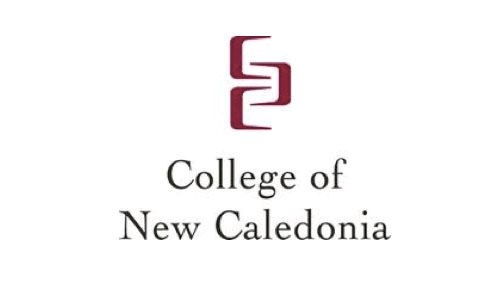The College of New Caledonia's board is refuting some of the findings reported by the Lakes District Family Enhancement Society in a September impact study it commissioned after last year's Burns Lake campus cuts.
"The approach to which the data was looked at was not in my mind as accurate as it could have been," said CNC's president Henry Reiser in an interview last week.
The college executive sent a statement to the Citizen to set the record straight.
While the impact study projected job losses to reach 70 by 2016-17, CNC said in the last three years only seven staff have been laid off, including four operational and three faculty.
A further 10 operational layoffs were handed out for the 2015-2016 school year, "as a result of the transitioning of family programs, but this process is currently unfolding," the CNC statement said.
The main discrepancy seems to be that the district's report is counting programs that existed but weren't annual course commitments, and therefore the staff don't actually count as faculty.
The college said those jobs shouldn't be counted as cuts.
"It should be noted that soft funded programs or one-time programs should not be counted as job losses, because they are not really reflective of stable ongoing employment realities," the college executive said.
"Soft funding varies from year to year depending on the economy, local events and other government initiatives. This funding typically employs many part time faculty and operational employees in term positions related to specific contracts."
The mayor of Burns Lake agreed the third-party report included the "soft-funded" programs in its assessment, which "were funded year over year by grant funding, industry initiatives, and other programs," but said the economy had little to do with the decisions.
"(In) fact, these positions have been consistently funded for over 10 years, some for over 25 years," said Luke Strimbold in an email response Wednesday.
"CNC has chosen to discontinue this programming, even though it placed no burden on their base budget, and therefore they are jobs that are lost to the community," Strimbold said.
"This is why the independent contractor who completed the study included these figures in their report."
Strimbold said the figures quoted in the study were released by CNC to the local advisory board in the spring of 2015.
A departure from social programming
The big shift for the Burns Lake campus is CNC's move to refocus on educational programming and away from what it calls social programming.
"We are transitioning that responsibility back to the agencies whose core businesses it is," Reiser said, adding the college is working with MCFD and the Ministry of Advanced Education to transfer to an appropriate agency in that community.
Strimbold disputes that approach.
"We have communicated to the board of CNC on several occasions that we do not agree that post secondary education and family social services are 'philosophically misaligned,'" he said.
Reiser said those programs, although previously offered by the college, are better suited for other organizations and should be still available.
"There was a large amount of money that covered the cost of delivery of our social programs.
"That will be removed from CNC but our sense is that it will still be in the community, just to another agency that's more appropriate," Reiser said.
Strimbold said that's not the case.
"Furthermore, CNC continues to allege that all of the services will be transitioned to other agencies. While some will be transitioned, and it is our hope that there is a very robust transition plan in place for the sake of our community, CNC has neglected to mention that several programs are not being renewed in the community as a direct result of the cancellation of the existing contracts."
CNC's executive said both it and the Ministry of Advanced Education "believe that the community will be well-served by having another community agency or agencies whose primary focus is the delivery of family and support programs."
Strimbold said no one at the ministry level has ever communicated that to his community.
"This opinion has only ever been expressed to us by the CNC executive. When our council met with the Minister of Advanced Education last week, he made no such comment," Strimbold wrote.
"There were some very successful, innovative practices in place that are being ignored and systematically dismantled by the current administration."
But the executive stressed its "mandate, core business and area of expertise" is in education and student services and in that regard, has maintained stable per student funding in Burns Lake.
But, with declining enrollment in Burns Lake in the last five years, CNC said it is challenged to change its programming so that courses are relevant and in demand.
"CNC is working diligently with many local and regional partners to increase the number of educational programs offered at our CNC Burns Lake campus."
Strimbold, on the other hand, blamed reduced programming for the enrolment dip.
"Prior to the current strategy of reduction instituted by CNC, the Lakes District campus had some of the highest program utilization rates in the entire college," he said.
"In fact, this campus delivered 14 per cent of the overall CNC Full Time Equivalencies (one of the main performance tracking statistics for the Ministry of Advanced Education) with only four per cent of the population."
The college board highlighted its Digital Delivery Initiative as a way to ensure the regional campuses and remote locations can have access to more educational programs.
It's still in the first year of a pilot stage, with a projected roll-out at all campuses by 2018.



